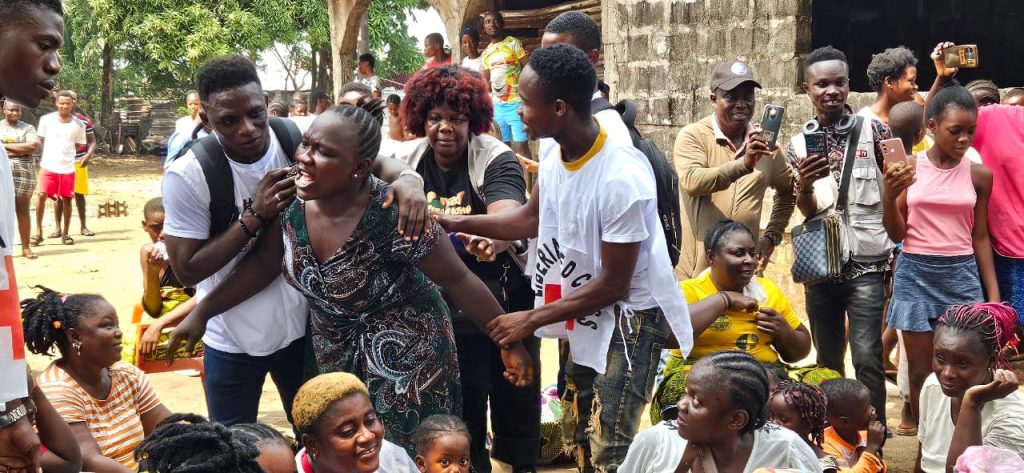The Liberia National Red Cross Society (LNRCS), in collaboration with a diverse group of national and local stakeholders, recently conducted a comprehensive flood simulation exercise in Grand Cape Mount County, Liberia. This exercise, themed “Strengthening Community Resilience through Early Warning and Coordinated Flood Response,” served as a crucial platform for evaluating and bolstering the nation’s disaster preparedness and response capabilities, particularly concerning the recurring threat of floods. Grand Cape Mount County’s vulnerability to seasonal flooding makes it a critical area for such preparedness initiatives. The simulation aimed to enhance the coordination and effectiveness of disaster response efforts by bringing together various stakeholders and community members, fostering a collaborative approach to mitigating flood-related risks.
The simulated flood scenario provided a realistic testing ground for the LNRCS and its partners, allowing them to assess their readiness to respond to a real-world flood emergency. By mimicking the challenges and complexities of an actual flood event, the exercise helped identify potential weaknesses in the existing disaster response framework and highlighted areas where improvements could be made. This proactive approach emphasizes the importance of preparedness, not just in mitigating the immediate impact of a disaster, but also in facilitating swift recovery and building more resilient communities for the future.
The exercise was more than just a simulation; it was a capacity-building initiative. It provided an opportunity for stakeholders and local communities to engage in practical exercises, learn from each other’s expertise, and develop a deeper understanding of flood-related risks and appropriate response strategies. The involvement of key organizations, including the National Disaster Management Agency, Environmental Protection Agency, County Health Team, Group of 77, Ministries of Agriculture and Gender, Liberia National Police, Robertsport City Corporation, and the County Superintendent, underscores the collaborative nature of disaster preparedness and response. This multi-sectoral approach ensures that all relevant parties are equipped to play their part in mitigating the impact of floods.
Flooding poses a significant challenge to Liberia, particularly in coastal regions like Grand Cape Mount County. The county’s susceptibility to seasonal floods often results in widespread displacement of communities, destruction of critical infrastructure, and significant economic hardship. These recurring events underscore the urgent need for effective disaster preparedness and response mechanisms that can minimize the impact of floods on vulnerable populations and facilitate a swift return to normalcy. The LNRCS recognizes that investing in preparedness today is an investment in a safer and more resilient future, reducing losses and strengthening the ability of communities to withstand and recover from future disasters.
The LNRCS emphasized the crucial role of coordinated action among national and local stakeholders in achieving effective disaster response. Timely intervention is essential to protecting vulnerable communities and mitigating the impact of floods. This requires seamless collaboration between government agencies, humanitarian organizations, local communities, and international partners. By working together, sharing information, and pooling resources, these stakeholders can create a more robust and responsive disaster management system. The flood simulation exercise served as a practical demonstration of this collaborative approach, highlighting the importance of shared responsibility in disaster preparedness and response.
The successful conclusion of the flood simulation exercise in Grand Cape Mount County represents a significant step forward in Liberia’s efforts to strengthen its disaster preparedness and response capabilities. The exercise not only provided a valuable opportunity for stakeholders to test their readiness and identify areas for improvement, but it also fostered a spirit of collaboration and shared responsibility that is essential for effective disaster management. The LNRCS remains committed to working with its partners to build more resilient communities across Liberia and to ensure that the country is better prepared to cope with the ever-present threat of natural disasters. This proactive approach, focusing on preparedness, early warning systems, and community resilience, is crucial for minimizing the impact of future floods and safeguarding the lives and livelihoods of vulnerable populations.














